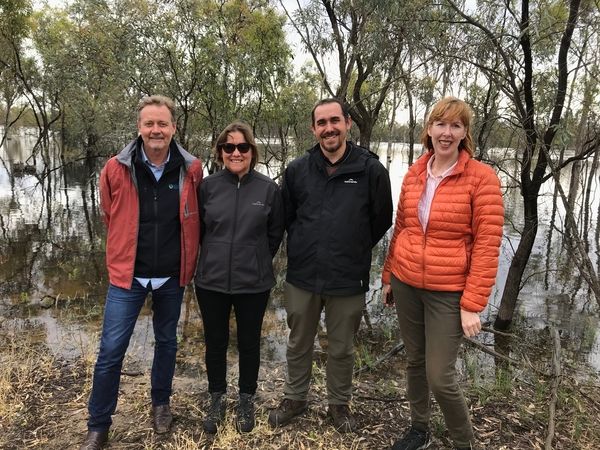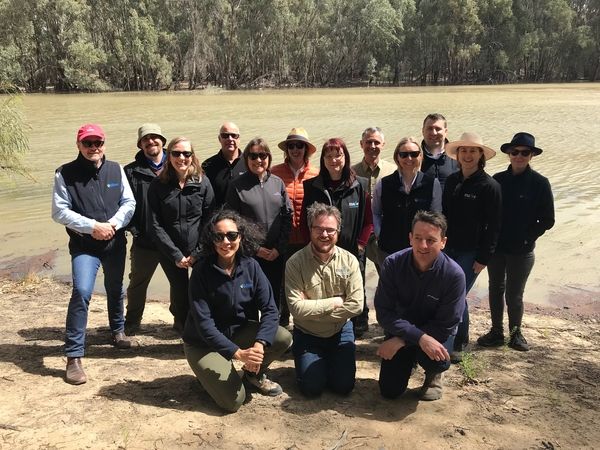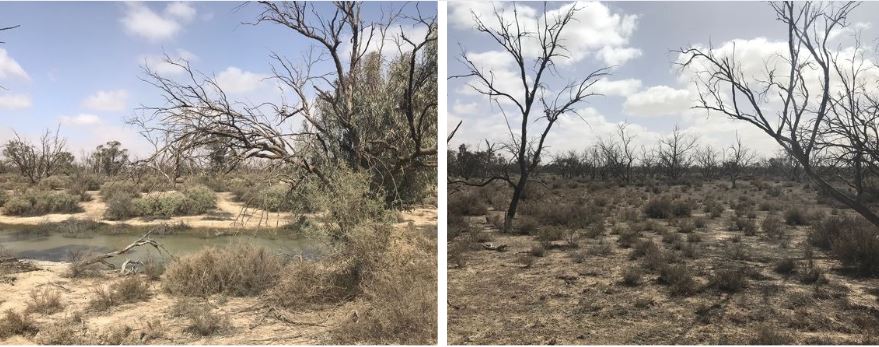An exciting trip hosted by Mallee Catchment Management Authority (CMA) saw the Victorian Environmental Water Holder (VEWH) Commissioners, Co-CEOs and executive team venture north. The group visited various sites getting into the nitty-gritty of environmental watering.
“It is important for us to visit the regions we hold water in,” said VEWH Commissioner Deputy Chairperson Peta Maddy.
“In striving to provide the most beneficial waterway environments through the delivery of environmental flows it is crucial that we connect to the different sites, work with the program partners and stakeholders and understand the challenges and opportunities,” said Peta.
The trip had a strategic focus with all in attendance taking the opportunity to explore dry year management, prioritising environmental flows and looking at the importance of significantly cultural sites.
During the trip key program partners, Traditional Owners and stakeholders were consulted helping to strengthen understanding around current issues and build on relationships.
“Getting out and about with our program partners is extremely beneficial,” said VEWH Co-CEO Sarina Loo.
“It allows us to experience, first hand, the challenges we are facing and helps us understand community concerns. We were able to discuss key issues such as ongoing dry conditions and water scarcity, which are not only being felt in the Mallee but across many Victorian regions,” said Sarina.
Visiting a significant cultural site was a highlight for the whole group. First Peoples of the Millewa Mallee Aboriginal Corporation Chairperson, Darren Perry, spoke about the importance of the site to Traditional Owners. Darren explained the traditional links to the land and the group was able to discuss how water for the environment could potentially support protection of the site.
Stark comparisons were drawn at Wallpolla Island when viewing the recovering black box trees that can receive watering and the adjacent black box trees that have not received watering, which were either dead or in poor health.
A stop at Hattah Lakes picnic ground, a popular spot with families and visitors, demonstrated how water for the environment has improved ecological conditions for various species including black box trees and regent parrots. Of equal importance was discussing how critical drying periods, like the one currently underway at the lakes, enables vegetation to germinate and grow, eliminates carp and creates an ideal habitat for waterbirds.
VEWH Commissioners: Chris Chesterfield, Peta Maddy, Rueben Berg and Jennifer Fraser at Lake Kramen, by Sarina Loo, VEWH
VEWH Commissioners, Co-CEOs, executive team and Mallee CMA at Wallpolla island, by Jonathan Belej, Mallee CMA
Recovering black box trees that can receive watering and the adjacent black box trees that have not received watering at Wallpolla island, by Sarina Loo, VEWH


